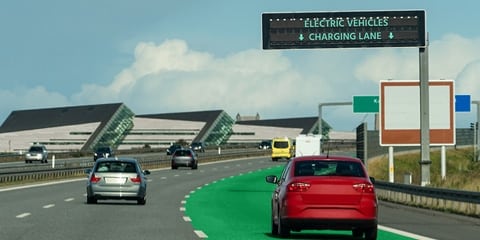There is good reason why EV charging roads are seen as pivotal to the adoption of EV’s by road users concerned that their EV will run out of charge before they reach their destination, or range anxiety as it has become commonly known. The news that Sweden will construct the first permanent EV charging road in the world will hopefully be seen as an indication that significant progress is being made to allay these concerns.
Electric road infrastructure will make it possible to travel farther distances between stops at charging stations, boosting the uptake of EVs and lowering carbon emissions as a result. E-roads would also reduce grid demand during peak hours, acting as a substitute for home charging, according to a recent research by Chalmers University of Technology in Gothenburg. The group also claims that combining static and dynamic charging at home might cut battery size by up to 70%. According to the researchers, only 25% of Sweden’s and Europe’s roadways would need to be electrified in order for the system to function.
Sweden started experimenting with EV road charging in 2018 on a 2 kilometre stretch between the Arlanda airport near Stockholm and a logistics hub in Rosenberg. By 2030, when it plans to outlaw new fossil fuel-powered cars, the government wants to have deployed 2,000 km of ERS on public roads. The country is now working on the first permanent electric road in the world, which will allow electric cars and trucks to charge while travelling, as nations throughout Europe step up their attempts to transition to fossil fuel-free mobility.
Italy, France and Germany are also testing the viability of building EV charging roads and a network of electric roads may actually have a chance of success due to Europe’s interconnectiing highways.
For commercial fleet, EV roads will benefit the mandatory targets that are likely to be imposed on companies to reduce their carbon emissions. Fleets that adopt electric technology will therefore be getting ahead of future legislation that is likely to tax companies that are not meeting their obligations, such as the proposal for a carbon emissions tax.
The UK has been testing EV roads since 2015 and Highways England has tested a charging system whereby cables underneath roads emit an electromagnetic field that is absorbed by a coil built into EV’s in order to absorb the electricity wirelessly. This is similar to a system that is being used in South Korea, but the UK is yet to announce any plans for when we will start to see and EV charging road network in the UK.
© 2023. Please do not reproduce without our permission



